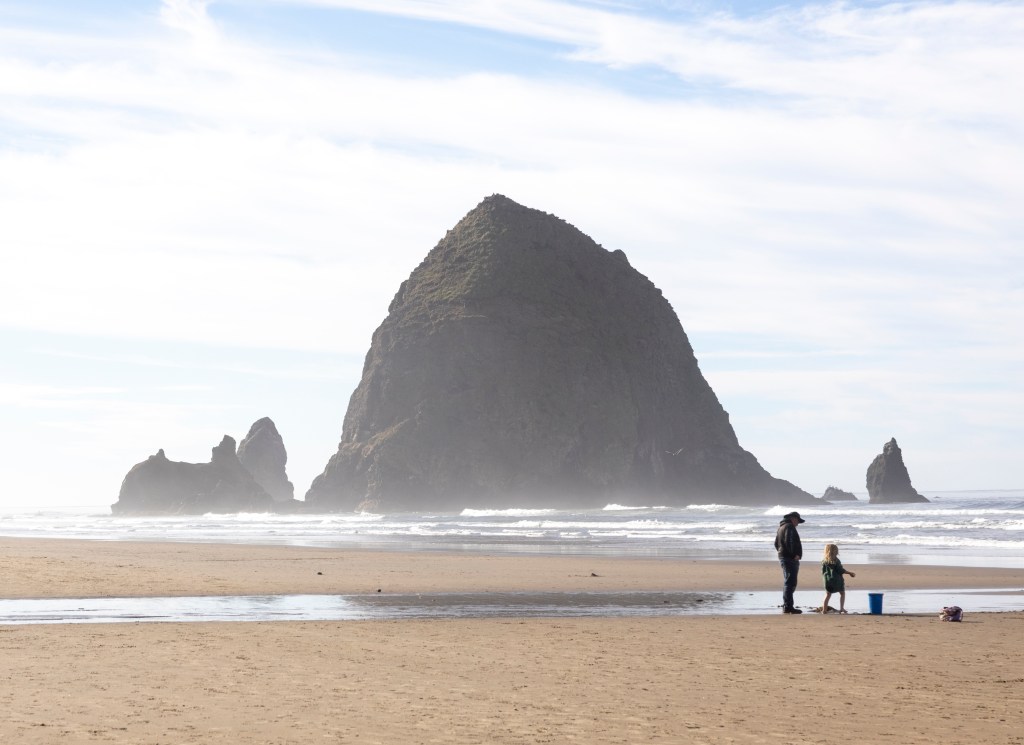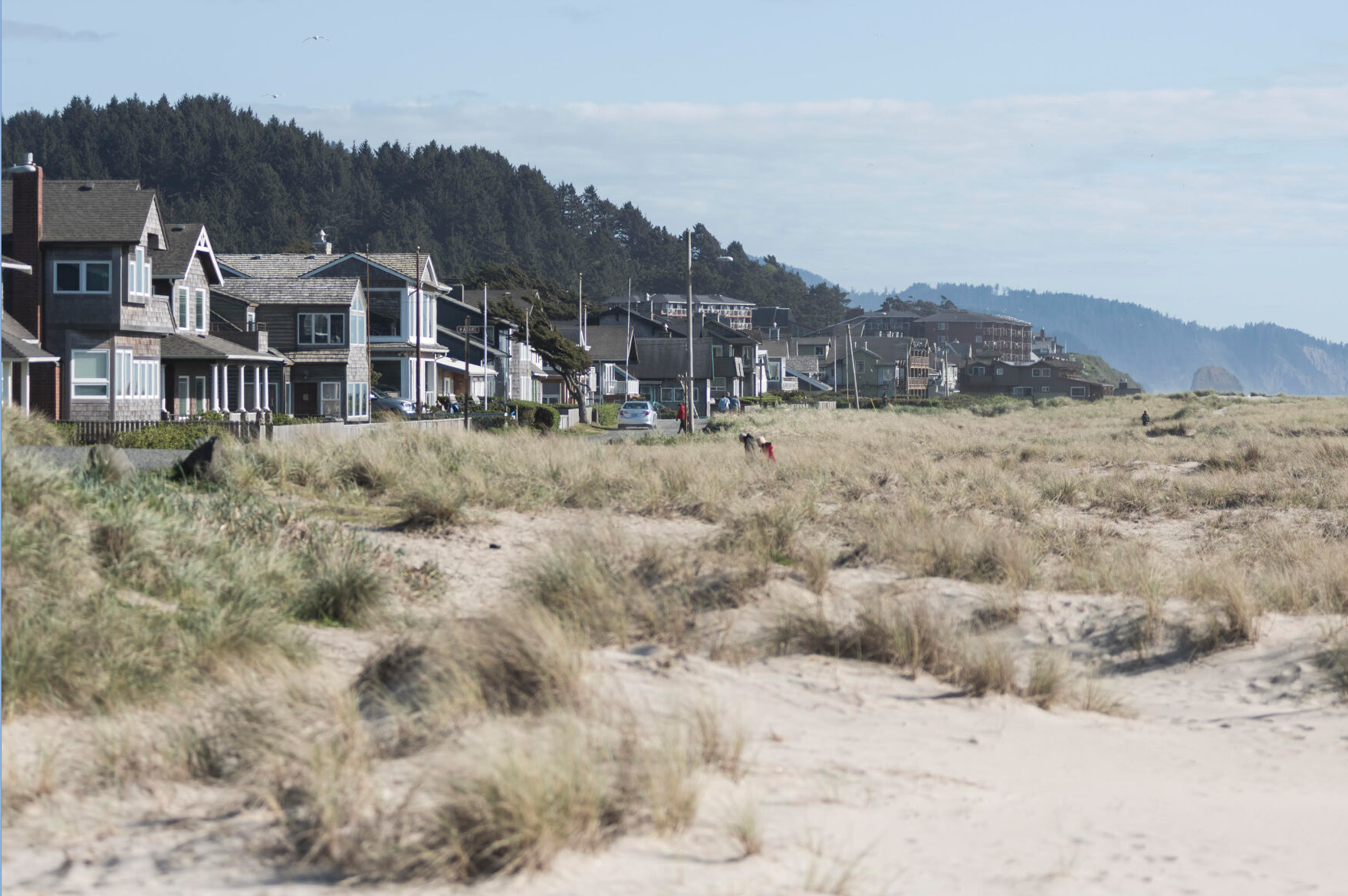North Coast projects receive funding in latest round of Travel Oregon grants
Published 11:50 am Wednesday, July 9, 2025

- A family plays in the sand in front of Haystack Rock in Cannon Beach.
The Oregon Tourism Commission is awarding nearly $6.2 million worth of competitive grants to 65 projects across Oregon — including several projects on the North Coast.
The commission, doing business as Travel Oregon, receives funding from the state’s 1.5% lodging tax, a portion of which is used to award money to local organizations each year through a competitive grant program. For the last few years, the focus has been on projects that increase inclusion and decrease barriers to access.
“We know that traveling with a disability or (with) someone that has a disability can be really difficult and daunting, and that many people just opt not to,” said Allie Gardner, Travel Oregon’s industry communications manager.
Trending
The hope with the grants, Gardner said, is to help change that.
“There’s really a huge opportunity for Oregon, I think, to set our state apart,” she said. “It’s part of our vision to make Oregon a welcoming destination for all, and this is kind of a relatively untapped market which could drive significant growth as well.”
Projects have a range of focuses — from physical accessibility to outreach to the BIPOC and LGBTQ communities. This year’s coastal recipients include David’s Chair Outdoor Mobility Systems, Friends of Haystack Rock and the Oregon Coast Visitors Association.
David’s Chair, which received $98,900, is a nonprofit organization that provides all-terrain track chairs to help people with mobility impairments access the beach. The award will help expand the nonprofit’s services in Seaside, Rockaway Beach, Pacific City and Coos Bay through the addition of five chairs and a trailer. Joshua Heineman, Seaside’s director of tourism marketing, said the city currently has access to one track chair, but demand has been high enough to warrant a second.
“Those with mobility challenges, regardless of the reason, are most often left out, or disregarded, when it comes to outdoor recreation and experiences. With the help of Travel Oregon, David’s Chair is providing access for those who need it, free of charge, via electric all-terrain track chairs. We are very grateful for this support and the more equitable community and accessibility we can create together,” David’s Chair Operations Manager Jeff Kallevig said in a press release.
Friends of Haystack Rock, which works in cooperation with the Haystack Rock Awareness Program in Cannon Beach, received $56,680 from Travel Oregon. Program Coordinator Lorie Dilley said the award will be used in three ways.
Trending
Some of the funding will be used to provide training to help Friends of Haystack Rock and Haystack Rock Awareness Program personnel better serve neurodiverse visitors and offer educational materials on the beach. Another portion will be used to develop a series of videos about Haystack Rock with an American Sign Language interpreter and closed captioning for people whose first language isn’t English. The nonprofit also plans to use funding to conduct a feasibility study on providing courtesy shuttles to Haystack Rock for people with mobility limitations.
The Oregon Coast Visitors Association received $150,000 to support a marketing campaign for its new North Coast Express pilot, which is offering a shuttle between Portland and the North Coast on Fridays, Saturdays and Sundays throughout the summer.
The pilot launched May 23 and will continue through Aug. 31. The idea is to offer a car-free, ADA-accessible way to travel, adding onto existing transit options offered along the coast through the Tillamook County Transportation District and the Sunset Empire Transportation District.
“What the Express is really trying to do is get cars off the road,” said Finn Johnson, OCVA’s North Coast destination stewardship manager. “It’s a pilot that’s focused on trying to reduce the burden of tourism in North Coast communities during the summer months.”
Johnson said the marketing campaign will focus on getting the word out to historically disadvantaged communities and people in the Portland area who wouldn’t typically make a trip out to the coast. Informational materials will be offered in Spanish, Chinese, Vietnamese, Russian, Ukrainian and Korean.
All of the projects selected by Travel Oregon for grant funding fit into the strategies outlined in its vision, Gardner said — and the North Coast Express is a perfect example of a project that increases accessibility for visitors while also addressing resident concerns around the impacts of tourism.
“All the ways that we invest back, they’re really meant to provide and create remarkable visitor experiences, but also improve quality of life and the experience for Oregonians as well,” she said. “Resident sentiment is one of the most important performance indicators that we follow and that we track our success by — and really, we live here too, so we want people to be happy with their experience living here and welcoming visitors authentically.”









